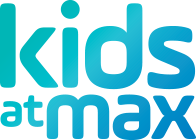
A child’s receptive vocabulary refers to their ability to understand the meaning of different words. If a child hears a word and is able to understand what that word means, then we know the word is in their receptive vocabulary. This differs to expressive vocabulary, which is a child’s ability to express a word verbally when communicating.
Children are often able to understand more than they are able to say. Therefore, they tend to understand a word before they begin to use it during conversation and usually a child will need to hear a word many times before you will hear them use it when talking.
Children who have a limited vocabulary often use a lot of filler words in conversation (such as “this” or “that”). Instead of using a variety of words to describe things they may instead replace words with fillers (e.g. “I want this” or “that one”). Our speech therapists in Bentleigh have put together some helpful tips to encourage your child’s vocabulary to grow.
1. Label it for them
Try to reduce the number of questions you ask your child. Instead of quizzing your child and asking them what an object is when they pick it up, label it for them instead. The more often your child hears different objects being named, the more likely that they will begin to associate the toy or item with the word.
2. Follow their lead
When labelling or providing examples (“modelling”) for your child, it is best to follow their lead. This refers to talking about what your child is interested in or focused on at that exact moment. For example, if your child is playing with a car you might say “red car” or if they are pretending to feed their doll, you might say “hungry dolly”.
3. Focus on action and describing words
If you feel that your child is able to name lots of different food items, toys and clothing items, the next step is to help develop their understanding of describing words and action words. You might point out a picture of someone crying and say “the boy is crying”, remembering to emphasise the word that you are trying to teach. If you are at the park and push your child down the slide you might say “going down the slide”.
4. Use gestures
When providing your child with examples of action words it can be helpful to use lots of gestures to accompany them. For example, if you are modelling the word “up”, “down” or “spin” it is helpful to use your hands to demonstrate the word.
5. Use your voice
Another helpful tip is to use your voice to emphasise the meaning of words. For example, you might speak in a very loud voice when talking about something being “loud” or reduce the volume of your speech when talking about the word “slow”.
6. Repeat new words
While it is important for your child to expand the number of words they use in conversation, it is also helpful to continue developing their understanding of new words. A good way to do this is by providing a child with an explanation about a new word so that they can begin to relate these new words to the meaning.
For more information on speech therapy or support on expanding your child’s vocabulary, please contact Kids At Max on (03) 9702 4447 to speak to a speech pathologist in Bentleigh.
Written by Kids At Max Psychologist
